Zambia will not end poverty by 2030, predicts Action Aid Zambia Country Director Nalucha Ziba
Notice: Undefined index: catFilterList in /home/zambi/public_html/wp-content/plugins/wp-likes/api.php on line 243

Nicole Richards (Left)w Favourite Jenala Kalando (Right)
By Favourite Jenala Kalando
ACTION Aid Zambia Country Director Nalucha Ziba says it is impossible for the country to meet the global United Nations (UN) target of ending poverty by 2030 because resources meant to address achieve the goal continue being diverted to debt servicing.
A worried Mrs. Ziba argued in an interview in Lusaka that the diversion of poverty alleviation resources to debt servicing has put a strain on delivery of social services such as Health, Education and Agriculture to name but three sectors.
Mrs. Ziba has therefore appealed to government through Finance Minister Dr. Bwalya Ng’andu to consider restructuring of the loans that Zambia owes multinational lenders.
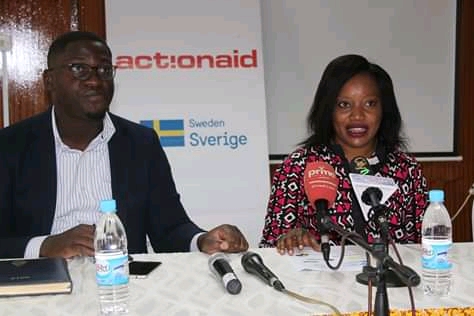 The Action Aid Zambia Country Director is however bothered that the Zambian government is undertaking the diversion of resources from the social sector to international debt servicing in a very secretive manner.
The Action Aid Zambia Country Director is however bothered that the Zambian government is undertaking the diversion of resources from the social sector to international debt servicing in a very secretive manner.
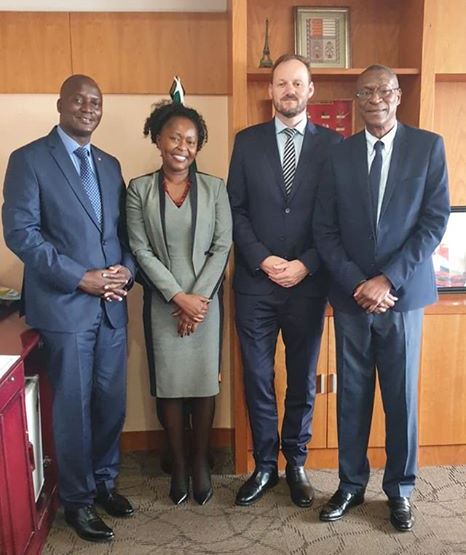
Mines and Minerals Development Ministry Permanent Secretary Barnaby B. Mulenga with Minister Richard Musukwa
Mrs. Ziba says it is prudent for the Zambian government through Minerals and Mines Minister Richard Musukwa to come out in the open so that a number of Mines firms in the country can be brought to a roundtable meeting to help in restructuring the debts.
Still on debt, the Breton Woods Siamese Twins – International Monetary Fund (IMF) and the World Bank, sent a ‘debt-interest cut-clarion call on Wednesday 25th March 2020 to bilateral creditors to provide immediate debt relief to the Least Development Countries (LDC), Zambia, Zimbabwe, Ethiopia, to name but three, who owe western creditors US$15 trillion in debts.
The debt has bourgeoned, quadrupled or increased four-fold from US$4 trillion recorded in 2010, and is likely to rise on account of the rapidly spreading coronavirus (COVID 19), which by Press Time had claimed over 21,000 lives.
Those nations, home to a quarter of the world’s population and two-thirds of the world’s population living in extreme poverty, will be hardest hit by the pandemic, the campaigners argued ahead of the G20 meeting, on Thursday 26th March 2020.
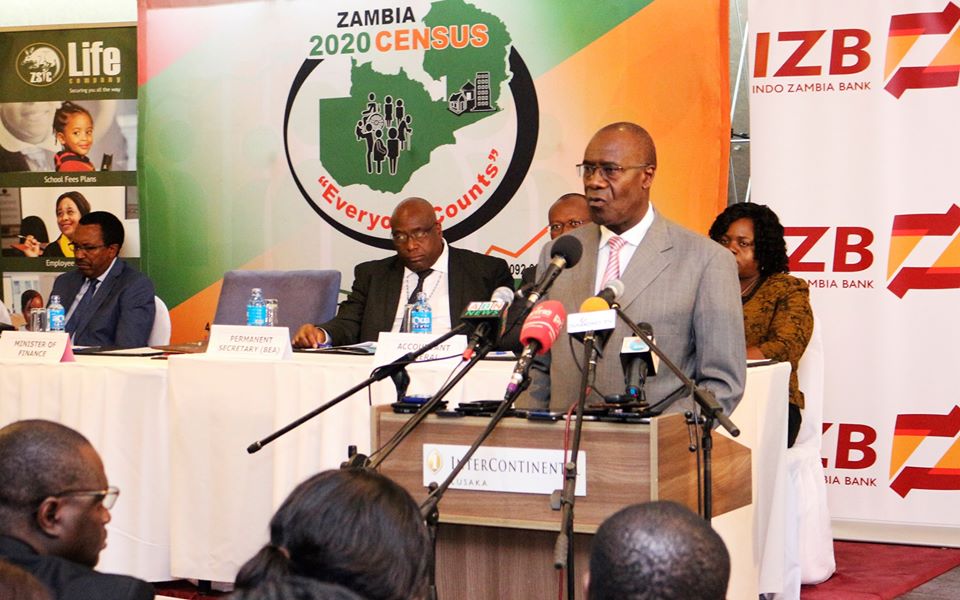
Finance Minister Bwalya Ng’andu on Wednesday 12th February 2020
As Zambia’s international debt stands at US$11.2 billion, Finance Minister Bwalya Ng’andu sought a moratorium or debt freeze to save US$500 million.
Former Finance Minister Margaret Mwanakatwe had earlier sought for a debt swap with China, raising a view that Zambia’s intended to shelve incomplete projects, amid criticism that a desire to renegotiate loans.
China has provided 30 percent of Zambia’s debt stock with $3 billion in Eurobonds outstanding, and the first of $750 million due for repayment in 2022 and two due in 2027,” said Mwanakatwe, Zambia’s former second female Minister of Finance.
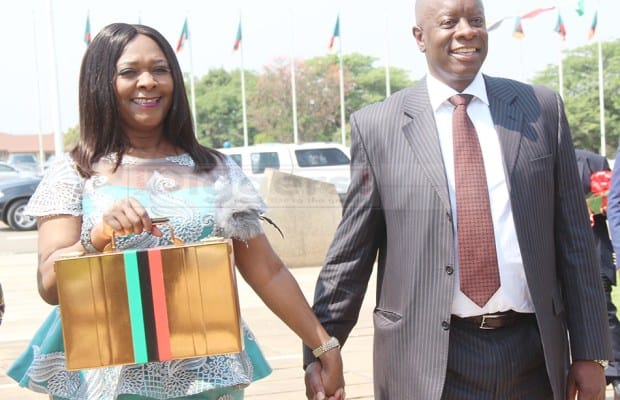
Finance Minister , Hon. Margaret Mwanakatwe, who is also Lusaka Centre MP, pictured with her Husband Mpanga Mwanakatwe upon arrival at Parliament to Present the 2018-19 Budget
Zambia has no option but to stabilize the budget deficit of 9 percent of her Gross Domestic Product (GDP) by December 2020.
Inflation is pegged between 6-8% with a fiscal shortfall of 3 percent from 7.8% of GDP.
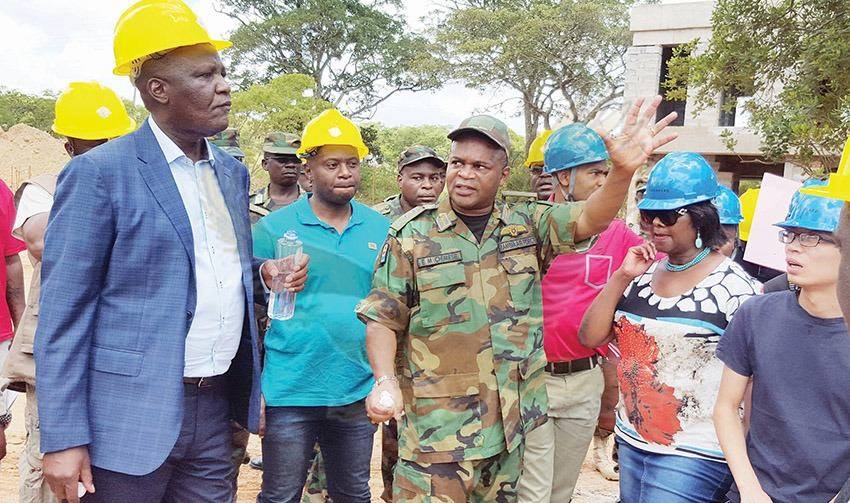
Mutati, Chimense Eric and Mwanakatwe
Forum for Democracy and Development (FDD) President Edith Zewelani Nawakwi, is equally agreed as debt distress for Zambia is a concerning reality and thus justifying the inevitable debt relief meant to assist realign the economy.
Nawakwi, credited to have served as Zambia’s former first female finance minister in Second Republican President 1991-2001, the late Dr. Frederick Titus Jacob Chiluba’s Movement for Multiparty Democracy (MMD) Government wants the PF Government of Dr. Edgar Chagwa Lungu to admit the economic woes.

Dr. Katele Kalumba, Ng’andu Magande, Ng’andu Peter Magande, Edith Nawakwi, Dr. Situmbeko Musokotwane, Alexander Chikwanda and Rabson Chongo
Zambia borrowed in excess of US$3 billion in Euro bonds, US$750 million secured in 2012 for revamping the national railway line was not invested as procured. US$1.5 billion secured in 2014 and another US$1.1 billion secured a year earlier meant for capital projects but all were diverted and due for servicing from 2022-2027, fueling concerns of Zambia defaulting.
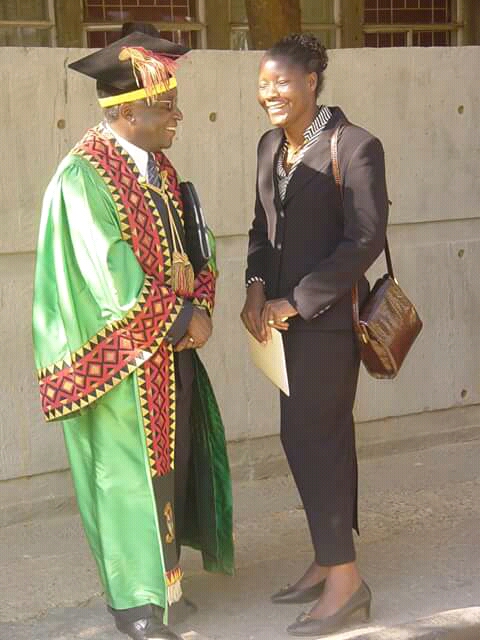
Forum for Democracy and Development President Edith Zewelani Nawakwi with Dr. Jacob Mwanza UNZA – Picture by Derrick Sinjela
Dr. Ng’andu, the Finance Minister, who previously served as Bank of Zambia (BoZ) Deputy Governor for Operations, before stepping into Margaret Mwanakatwe’s shoes on Lusaka’s Chimanga Road sought IMF’s intervention.
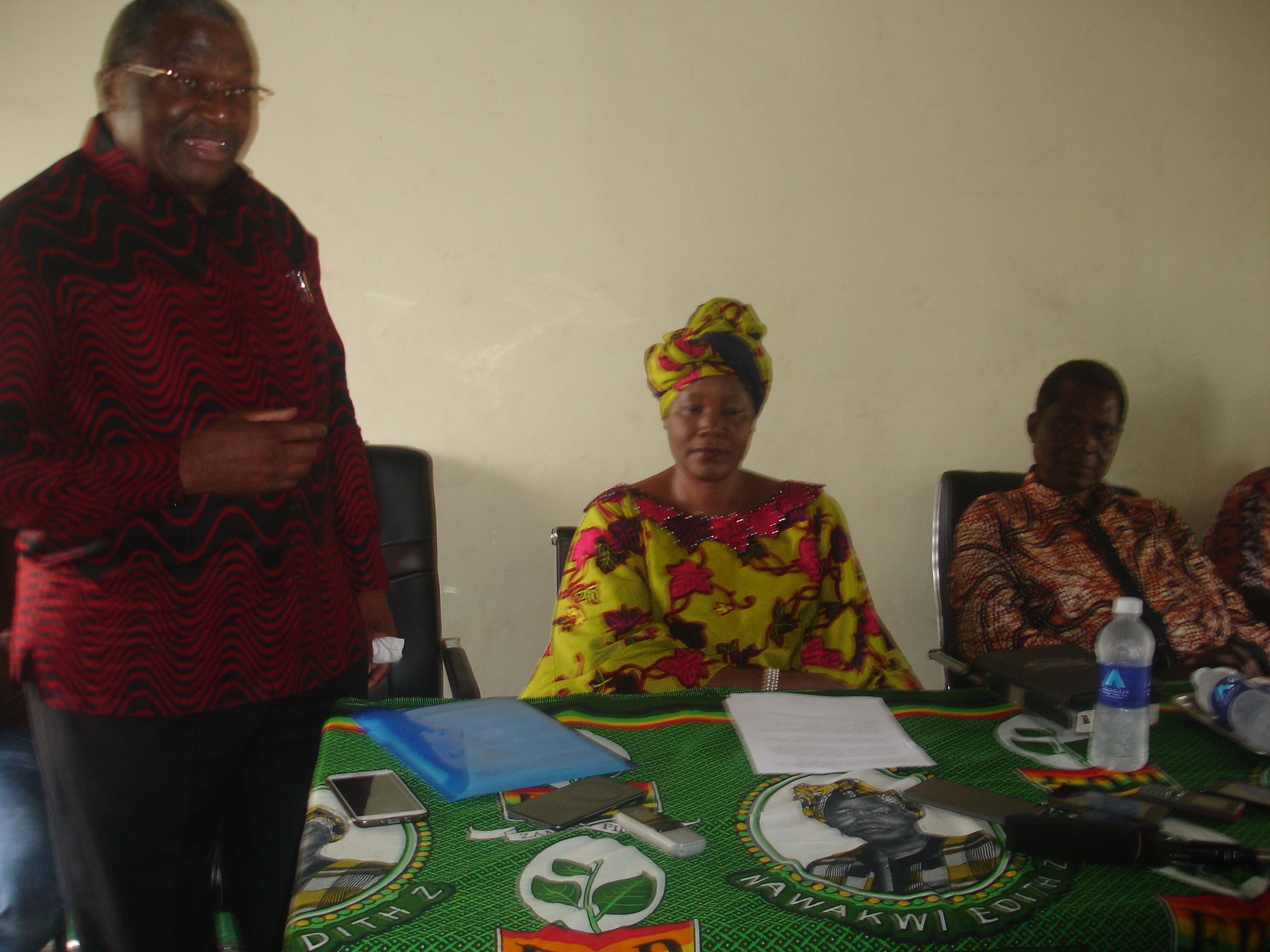
Forum for Democracy and Development Edith Nawakwi and Chifumu Banda reconcile Sat 28 October 2017 pix by Derrick Sinjela




















